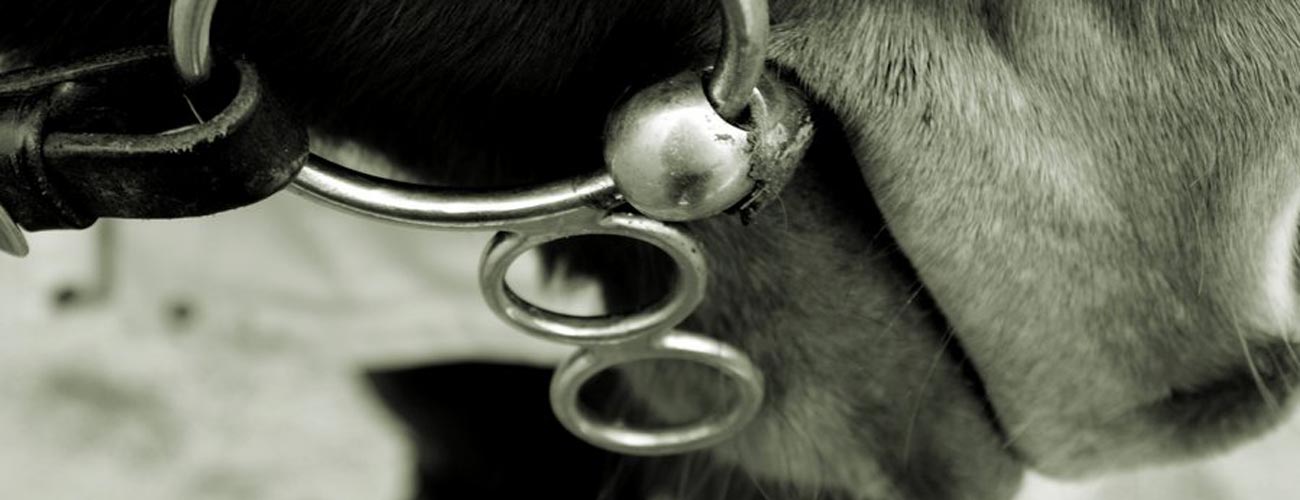Sign up for the daily CJR newsletter.
For 37 years, fans of horse racing have been waiting anxiously for a Triple Crown champion. They got their wish in American Pharoah, a horse whose misspelled name has been a source of much auto-correction.
The story of how that misspelling came about–already nicely told–and the cautionary tale about not using spelling checkers mindlessly, are not the subjects of this column. Instead, we’ll talk about what the horse and fans were doing: “champing at the bit.”
“Champ” as a verb means “to chew hard and noisily; munch,” Webster’s New World College Dictionary says. Of “champing at the bit,” it says: “to bite upon its bit repeatedly and restlessly: said of a horse,” or “to show impatience at restraint; be restless.”
Put a metal bar in your mouth and you’d probably “champ it” too. “Champing” means the horse is trying to get the bit more comfortable in its mouth, or that it’s playing with a bit that is loose or rolls around. It’s a normal activity unless done to excess. “Champing” may also produce foamy saliva, but a horse that is foaming at the mouth is not rabid or angry, the way a dog foaming at the mouth is: A foaming horse is relaxed, and foam is considered a good sign in some dressage competitions.
So literally speaking, a horse “champing at the bit” is not eager to get moving; it’s just doing what comes naturally. Nonetheless, the idiom stands. For people, though, “champing at the bit” is all about impatience.
“Champ” began life in English as a verb around 1530, The Oxford English Dictionary says, “To crush and chew by vigorous and noisy action of the jaws; to munch.” A few years later, it was applied to what a horse does with its bit. (The Concise New Partridge Dictionary of Slang traces “champing at the bit” to the mid-1600s.)
In American English, the expression often appears as “chomping at the bit,” a variation that the Grammarist blog says is “about 20 times as common” as “champing” on the Web. (A Nexis search shows a 20-to-1 preference for “champing” over “chomping” in news publications.)
Garner’s Modern America Usage puts “chomping at the bit” at Stage 4 of the five-stage Language-Change Index, meaning only old hacks still object to it. But Garner’s also notes the useful distinction between “champ” and “chomp”:
What one champs is not actually eaten, but just bitten or gnawed, nervously. But to chomp something is to take a bite out of something and usually to consume it.
American Pharoah has gone from “champing” to “champion.” And even though “champ” comes from words meaning “to squeeze with violence, crush,” and that is figuratively what the horse did to its opponents, “champ” and “champion” are not etymologically related. “Champion” is much older, and comes from words meaning “fighter” or “combat.” The first “champions” were merely men of valor, not necessarily victors; it wasn’t until the early 18th century that “champion” mean the winner, the OED says.
Put that in your pipe and champ it. A bit.
Has America ever needed a media defender more than now? Help us by joining CJR today.







